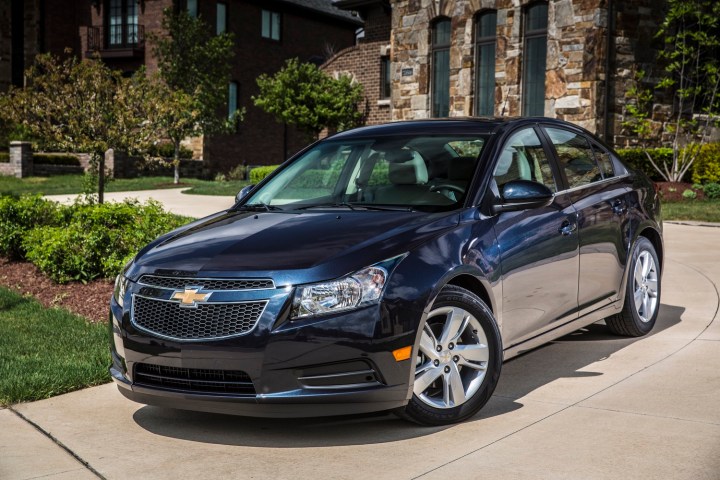
Now, General Motors is facing accusations of cheating. A class-action lawsuit filed in federal court in California Wednesday alleges GM used similar software to Volkswagen in the Chevrolet Cruze Diesel. The suit, filed by Seattle law firm Hagens Berman Sobol Shapiro, seeks buybacks, reimbursement of up to $2,000 for Cruze Diesel owners, and compensation based on any fix or extended warranties that aren’t used, according to The Detroit News.
The lawsuit claims that the plaintiffs have tested the Cruze Diesel using a Portable Emissions Measurement System (PEMS), and found that it violates U.S. emissions standards. PEMS devices are the industry standard for on-road tests of vehicle emissions and fuel economy. They were used by researchers from West Virginia University in the study that uncovered Volkswagen’s diesel cheating.
Read more: Judge extends Volkswagen diesel settlement deadline
“These claims are baseless and we will vigorously defend ourselves. GM believes the Chevrolet Cruze turbo diesel complies with all U.S. EPA and CARB [California Air Resources Board] emissions regulations” GM said in a related statement. Chevy sold the Cruze Diesels involved the lawsuit from 2013 to 2015, and plans to bring a new Cruze Diesel based on the redesigned 2016 model to the U.S. at some point.
The lawsuit also cites a German environmental group’s report that GM’s Opel division uses a device that disables certain pollution controls under specific conditions. Opel has repeatedly denied that it uses illegal software. In a statement released last month, the carmaker called the group’s findings “misleading oversimplifications and misinterpretations of the complicated interrelationships of a modern emissions control system of a diesel engine.”
The law firm filing the Chevy Cruze suit is a member of the court-appointed committee working to reach a settlement in the Volkswagen diesel case. It is also lead counsel in a suit filed against Mercedes-Benz for alleged use of “defeat device” software.


